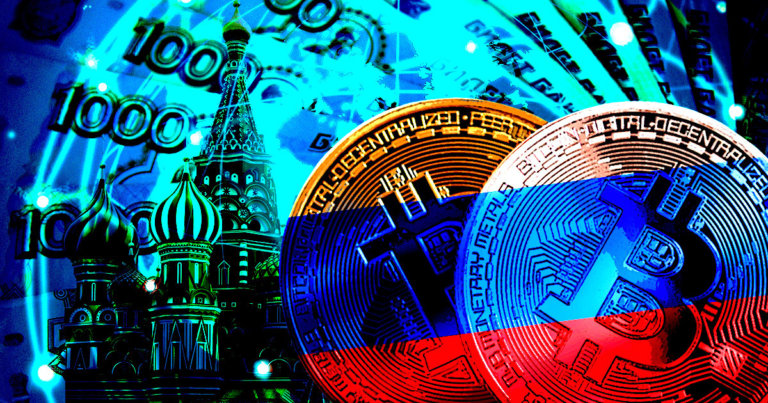 Russia’s Rosbank starts offering cross-border crypto payments despite nationwide ban
Russia’s Rosbank starts offering cross-border crypto payments despite nationwide ban Russia’s Rosbank starts offering cross-border crypto payments despite nationwide ban
One of Russia's largest banks supports paying for imported goods and services in crypto, but the workaround is complicated and skirts strict restrictions..

Cover art/illustration via CryptoSlate. Image includes combined content which may include AI-generated content.
Rosbank, one of the Russian Federation’s most important financial institutions, is set to become the first major bank to offer cross-border transactions in cryptocurrency, according to reporting from the Russian business journal Vedomosti.
The bank emphasized that these transactions are in strict compliance with existing legislative requirements, the Central Bank’s guidelines, and the bank’s own compliance policy.
Rosbank is collaborating with Russian fintech service B-Crypto, which offers a technical solution for its customers to participate in cross-border digital currency transactions.
The process for paying foreign suppliers in crypto is not simple. Under the process, Russian companies that opt to pay for imported goods or services in cryptocurrency may do so after making arrangements with the supplier and indicating the wallet from which it will pay. The supplying company then issues an invoice that includes the amount due in cryptocurrency and its receiving wallet address.
Once the contract is signed, the purchasing company deposits the owed amount in fiat cash into its Rosbank account; Rosbank then transfers the money to third-party partner institution B-Crypto, which uses the money to buy the desired cryptocurrencies from so-called “friendly” nations and then forwards it to the supplier.
Russia’s stance on crypto
The Kremlin’s stance on crypto is not supportive, and its use as a medium of exchange for goods and services has been banned in Russia since last July.
The Bank of Russia also prohibits crypto use in the national economy, it permits its use outside of Russian infrastructure and in cross-border operations. Russian legislation currently lacks a foundation for digital currency transactions. The country’s digital financial assets (DFA) law prohibits even private Russian residents from accepting digital currency as payment for goods and services.
Vedomosti reported that the remaining top 50 Russian banks, when queried, did not confirm providing similar services. Aleksey Voylukov, Vice-President of the Association of Russian Banks, admitted that he had seen no other examples of such implementations among large banks.
Andrey Tugarin, managing partner of the legal company GMT Legal, states that B-crypto’s cryptocurrency activities are entirely within the legal parameters. He emphasizes that the DFA law only pertains to transactions conducted via Russian information infrastructure.
As the DFA law currently stands under review in the State Duma, potential amendments could allow digital currency transactions within an experimental legal regime.



















































